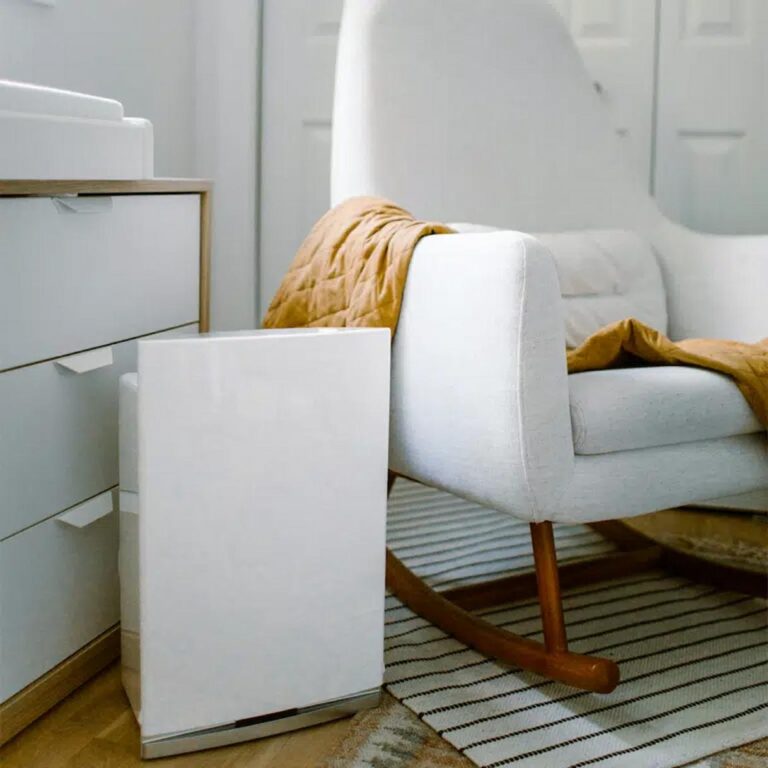If you've ever experienced a 90°F day with high humidity, you understand the praise behind air conditioning. Air conditioning, or A/C, is controversially one of the greatest inventions of the 20th century that has saved countless lives from heat stroke and is now installed in hospitals, schools, and homes all over the world.
At the peak of summer with intense heat waves traveling across the country, families have been relying even more on their air conditioners to survive the heat. Air conditioners are truly an amazing investment, made for people to feel more comfortable by pumping cool, refreshing air into their homes and offices.
While enjoying the relief from the heat, people may not know the dangers behind this device.
The dark side of A/C.
Although these incredible machines seem perfect, if air conditioner units aren't managed properly, they can be circulating more than just cold air. A/C units recycle your indoor air to cool - with that being said, if you have contaminated air in your home, the indoor air pollutants could be on a neverending exchange.
According to the EPA, indoor environments can have up to 100x higher levels of pollutants than outdoor, so there needs to be a release of these pollutants to improve the quality of the air. While some sources of pollution are easily identifiable like mold on the walls, others can be more difficult to identify or remove. Pollution sources can range from the hair of a family pet to pollen from the season change, to COVID-19.
How these pollutants affect the occupants.
As the refreshing, cool air blasts throughout the home, well, so do the pollutants. As the mold spores and other microscopic particles travel throughout the contaminated air, it damages the indoor air quality and can possibly result in Sick Building Syndrome, or SBS. According to the EPA, SBS is when building occupants experience acute health and comfort effects that appear to be linked to time spent in a building, but no specific illness or cause can be identified.
Should I leave my windows open while running the A/C?
An approach to lowering the concentrations of indoor air pollutants in your home is to increase the amount of outdoor air coming indoors. But, in this case, you're not going to want to do that. According to Micheal Rubino, author of The Mold Medic, you should keep windows and doors closed when the A/C unit is running.
"When that warm outdoor air meets the chilly indoor air, it can create condensation inside the home. More moisture means more opportunities for mold growth" states Rubino. If mold settles into the A/C unit, it has the ability to grow with easy access to water (mold's best friend for survival). The fan then blows the mold spores into the surrounding air, spreading the microscopic particles.
How to clean mold buildup.
According to The Mold Medic, the products needed:
- Protective Gear: A mask, gloves, and goggles can help prevent any particles kicked up from decontamination from entering the body.
- HEPA Vacuum: To qualify as HEPA, the machine must remove at least 99.97% of particles up to 0.3 microns in size.
- Microfiber Towels: Microfiber towels are 100 times better than regular rags at wiping away small particles.
- 8% Hydrogen Peroxide: Hydrogen peroxide is a descaler, meaning that it helps pull hard-to-remove particles from the surface so that they can be removed.
One thing you should never use to handle mold is bleach. This harsh chemical is not the go-to product for a multitude of reasons, including leaving harmful particles behind on surfaces.
How do I prevent this mess?
Increase your mold awareness - which you have already begun by reading this information. Good job! A/C units both cool spaces and dehumidify while draining around 15 gallons of water a day - making it a convenient gathering place for mold spores. Air conditioning units can be home to mold, dust, allergens, and irritants. To prevent the circulation of unhealthy air, change filters often, clean the inside of the machines, or replace your units annually.
Regularly check inside your units to make sure there is no mold buildup. If you start to smell or see mold buildup, immediately turn the unit off and wipe the inside of the machine. Since there are thousands of species of mold, be aware of the different colors, shapes, and textures. Microbial volatile organic compounds, or MVOCs, are a variety of compounds and gasses of fungi and bacteria. These MVOCs are the reason that mold has an earthy, musty smell.

The use of air purifiers.
Let's face it, there are microscopic contaminants floating around in the air we breathe - even in our "tidy" homes! This is extremely common, but we now have the technology to kick those pesky particles out for good. Investing in air purification solutions can result in a major decrease in harmful particles within the building's air.
Intellipure's patented Disinfecting Filtration System, or DFS, technology exceeds the well-known HEPA filter standards when it comes to efficiently removing particles from the air. DFS technology starts with a filter that is installed in an airtight sealed unit. Within the unit is a constant 15kV energy field that groups then captures ultrafine particles and eliminates them on contact.
The best-seller Compact air purifier can efficiently remove 99% of airborne mold, bacteria, and particles as small as viruses. This unit is ultra-quiet and has been specially designed to deal with ultrafine particles, gas, and odor adsorption. Run the Compact while your A/C is on to prevent the cycling of harmful pollutants throughout the air.
Intellipure®
We’re reimagining the world as a better, safer place with innovative air purification technologies. Our solutions are engineered in the USA and trusted in nearly every industry. To find out more about the latest in clean air take a look at the Intellipure lineup and follow us on Instagram at @Intellipure.